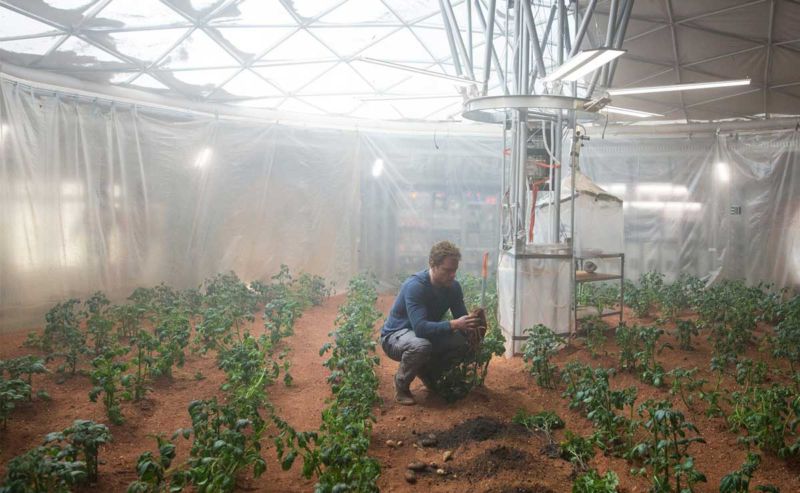Those Martian settlements sound great, but something important is missing
Ars Technica » Scientific Method 2016-10-08

Enlarge / Growing food and creating a livable environment are two engineering challenges on Mars that are just as important as making fuel. (credit: The Martian)
While Elon Musk's recent speech about the glories of Martian colonies is still echoing in our ears, we should take a moment to consider what it means to colonize a planet. It's not just about setting up some habitat pods and sucking water out of the regolith. Acquiring food and a livable environment are just as important as manufacturing rocket fuel, which is why it made sense to make a botanist the brave hero of recent colonization epic The Martian. You might say that growing space potatoes is key to the interplanetary survival of our species.
Put another way: we need awesome rockets to get to Mars, but we need environmental science if we're going to stay there. Colonization requires us to settle—actually settle, like my ancestors did in the 19th century wilds of Texas—in an alien ecosystem. For all we know, that ecosystem might be teeming with life. Unfortunately, colonization also requires us to destroy that alien ecosystem and replace it with one we prefer.
This is where we run headlong into the moral quandaries of our future space adventures. We can use existing environmental science to understand the nature of these quandaries. But to prepare for the ethical issues involved, it helps to have some science fiction.